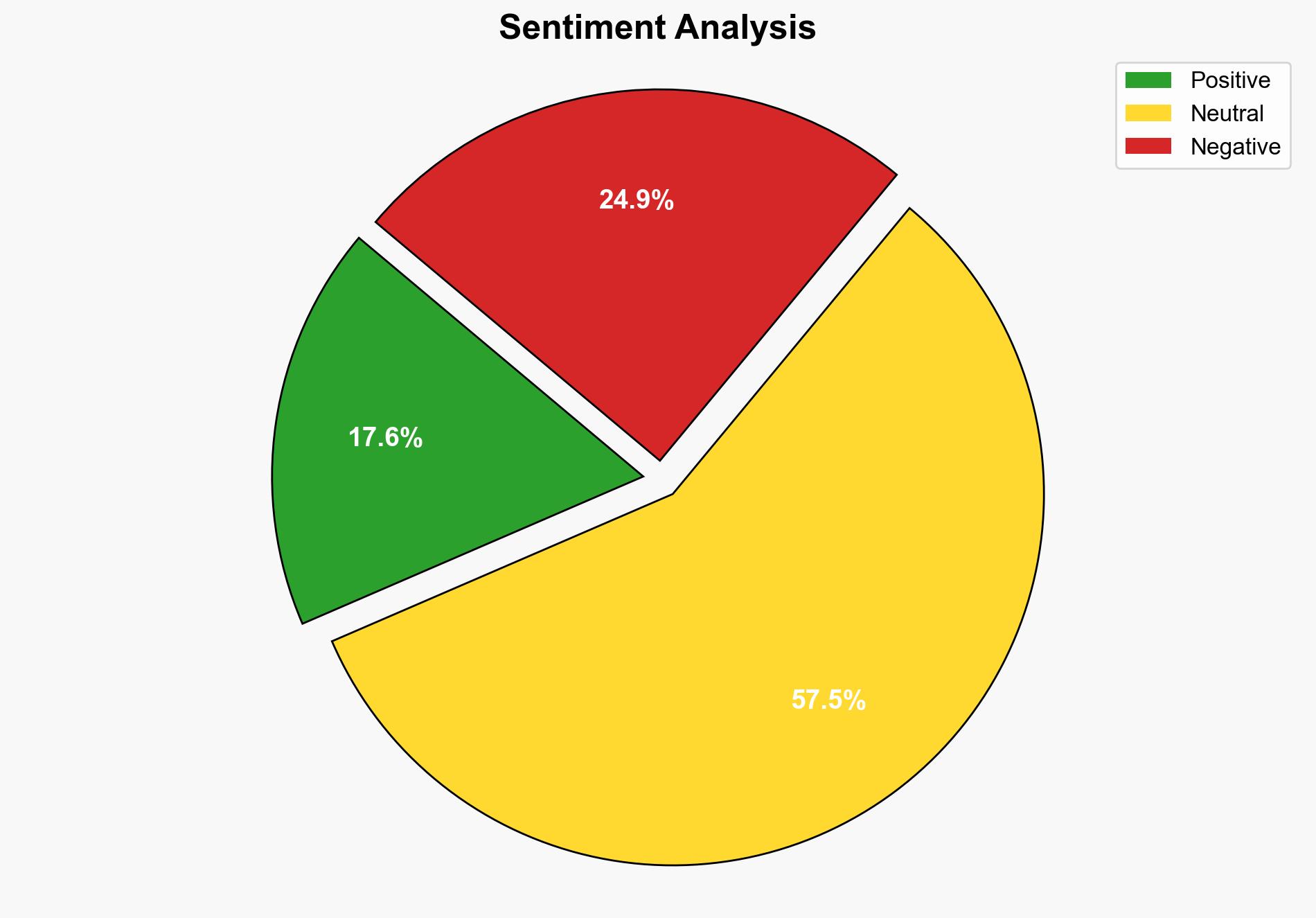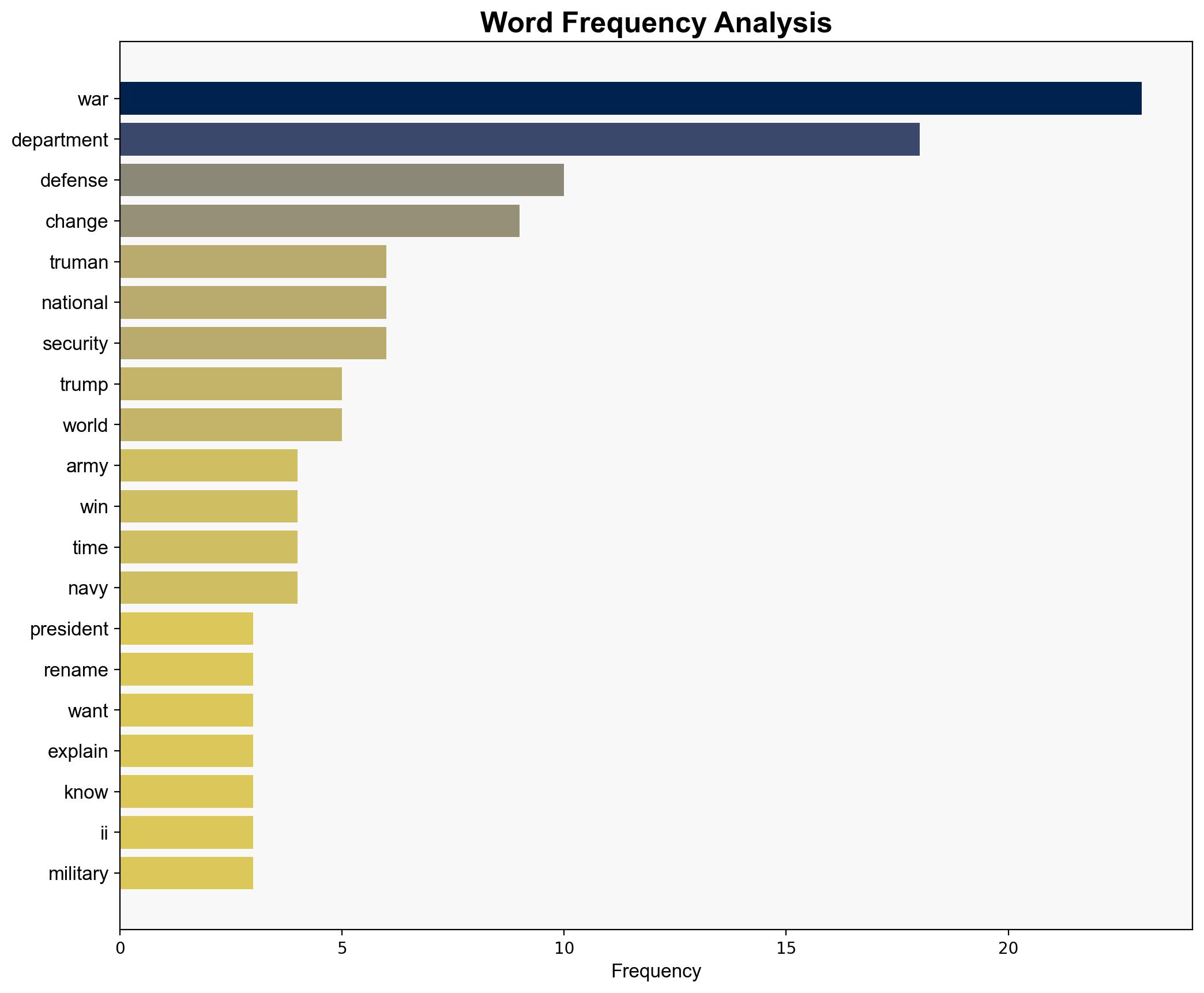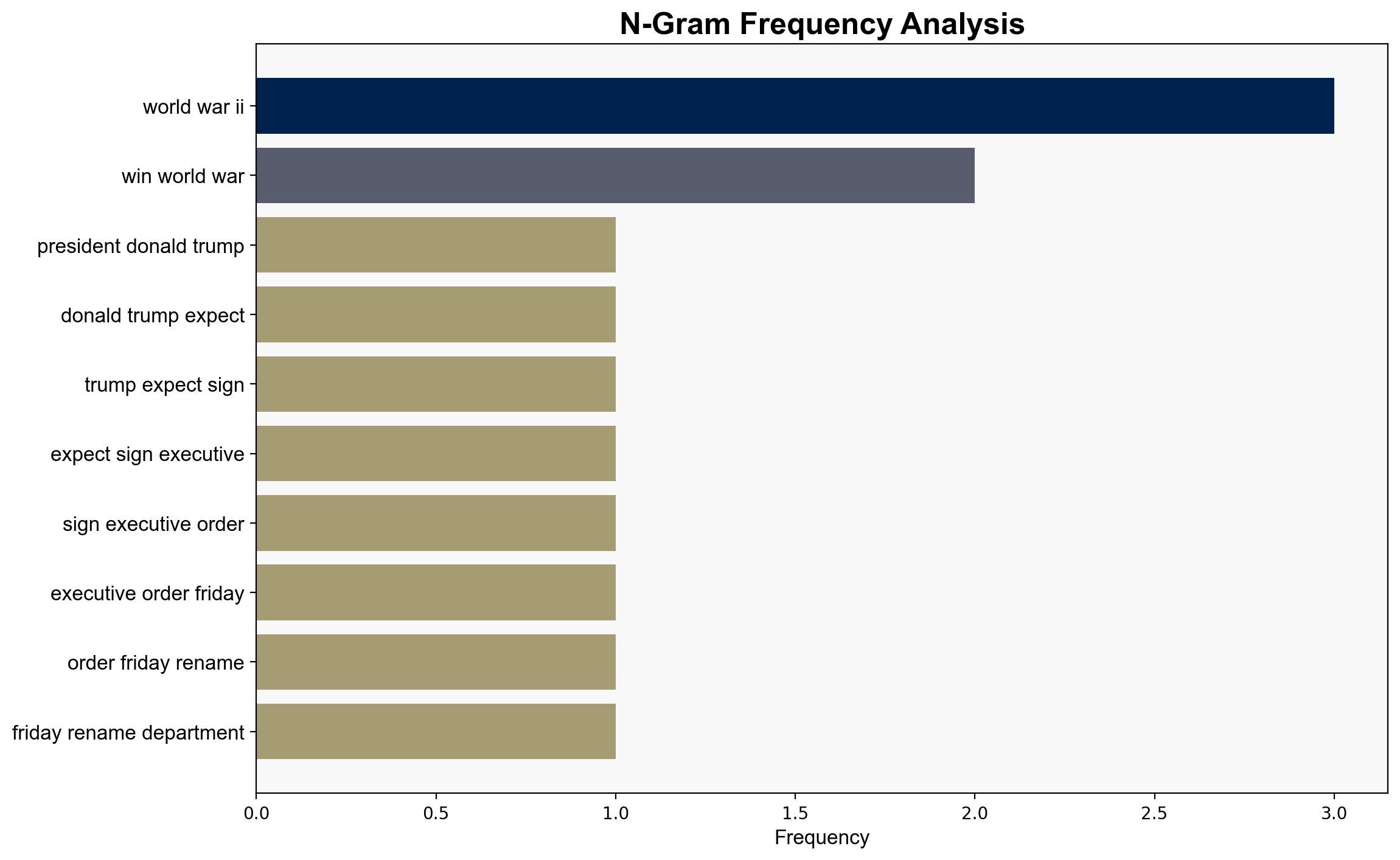Why its called the Department of Defense in the first place and why Trump wants to change it – Vox
Published on: 2025-09-05
Intelligence Report: Why its called the Department of Defense in the first place and why Trump wants to change it – Vox
1. BLUF (Bottom Line Up Front)
The most supported hypothesis suggests that the proposed renaming of the Department of Defense to the Department of War is primarily a strategic move to project strength and align with a more aggressive national security posture. Confidence level: Moderate. Recommended action: Monitor legislative developments and public discourse for shifts in defense policy rhetoric and potential impacts on international relations.
2. Competing Hypotheses
1. **Hypothesis A**: The renaming initiative is a symbolic gesture aimed at reinforcing a more assertive military stance, reflecting a desire to project strength and readiness in response to global threats.
2. **Hypothesis B**: The renaming is a politically motivated move designed to appeal to a domestic audience, emphasizing a return to traditional values and military might, with limited practical implications for defense operations.
Using the Analysis of Competing Hypotheses (ACH) method, Hypothesis A is better supported by historical context and Trump’s rhetoric emphasizing strength and victory in warfare. Hypothesis B lacks substantial evidence of political gain or public support for such a change.
3. Key Assumptions and Red Flags
– **Assumptions**: It is assumed that changing the department’s name will have a significant impact on military strategy and public perception.
– **Red Flags**: Lack of clear legislative path for renaming and potential resistance from military and political leaders.
– **Blind Spots**: Insufficient consideration of international reactions and potential escalation of tensions with adversaries.
4. Implications and Strategic Risks
– **Implications**: A name change could signal a shift towards a more aggressive defense policy, potentially affecting global alliances and diplomatic relations.
– **Strategic Risks**: Increased tensions with China and Russia, potential for misinterpretation of U.S. intentions, and domestic backlash against perceived militarization.
5. Recommendations and Outlook
- Monitor legislative developments and public opinion to gauge feasibility and support for the name change.
- Engage with international partners to clarify U.S. defense intentions and mitigate potential misunderstandings.
- Scenario Projections:
- Best Case: Name change leads to enhanced deterrence without escalating tensions.
- Worst Case: Name change triggers diplomatic fallout and increased global instability.
- Most Likely: Limited impact on actual defense policy, with symbolic value dominating discourse.
6. Key Individuals and Entities
– Donald Trump
– Pete Hegseth
– Harry Truman
– Melvyn Leffler
7. Thematic Tags
national security threats, military strategy, geopolitical tensions, defense policy




